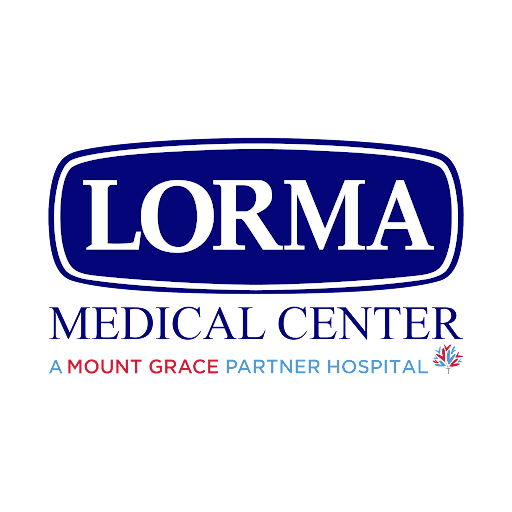NEONATAL INTENSIVE CARE UNIT / TRANSITION AREA

Lorma Medical Center Neonatal Intensive Care Unit is a 15-bed facility which caters to critically ill infants, premature or sick, needing care in various areas such as cardiovascular, surgical, and pulmonary. The Neonatal Nurses’ care is a holistic approach to the critically ill neonates. Care for the neonates involves management of the health care team and the participation of the mother and/or primary care givers of the patient in preparation for discharge.
The NICU is equipped with an incubator, infant warmers and cardiac monitors that facilitate close monitoring of critical neonates. The oxygen and compressed air sources are mounted on the wall where the suction apparatus can also be connected, when needed. A digital mechanical ventilator is dedicated in the inner NICU.
The unit is conveniently located adjacent to the Operating Room and/or Delivery Room for the Neonatal Nurse’s ease of access when a delivery is inherent. The NICU is just a step away if and when a compromised newborn needs advanced care.
TRANSITION AREA
The Transition Area is an area in the NICU dedicated for the observation of well babies that cannot be roomed-in with their mothers immediately as justified by their Attending Physician.
The infants in this area are closely monitored for untoward signs and symptoms.
MILK BANK
The NICU/ Transition Area has a dedicated Milk Bank which holds donated breastmilk from mothers with sick babies and from lactating employees.
It is being maintained by the Neonatal Nurse keeping record of the donated milk that comes in with proper labels and strictly follows the “First in, First out” Policy.
NICU PERSONNEL
The NICU personnel are well-trained in the Essential Intrapartum and Newborn Care that encompasses the basic skills of a Neonatal Nurse. It all starts when an infant is born where care is immediately given. From the mother’s womb, the newborn baby is delivered on to the mother’s abdomen where thermoregulation and assessment are done almost simultaneously to aide in the first breastfeed, whether in Normal Spontaneous Delivery or Caesarian Delivery.
The NICU Nurse must have basic knowledge of asepsis and antisepsis since the patients are in their most sensitive stage of life. They often assist in Umbilical Catheterization which is a more accessible and practical way of starting intravenous fluids in newborns. It is done in the convenience of the NICU with only minimal sterile equipment to prepare.
The Neonatal Nurse in training is shadowed by a seasoned senior in receiving newborns in the Operating/Delivery Room, taking in mind the four simple time-bound steps of the EINC: 1) Immediate and thorough drying of the newborn, 2) Early skin to skin contact between the mother and newborn, 3) Properly timed cord-clamping and cutting, and 4) Non-separation of newborn from mother for early breastfeeding. They are also trained in Lactation Management and Education to better equip them in handling mothers and newborns that have difficulty or reluctance in breastfeeding. A neonatal nurse is also trained to have Intravenous Therapy and ACLS/BLS certification.
The Neonatal Nurses attended the Helping Babies Breathe Program brought to the Philippines last 2015 by the American doctors onboard the USNS Mercy, echoed by Dr. Daisy Evangeline C Garcia. As a second installment to the HBB Program, they attended the Neonatal Resuscitation Program which honed their skills as neonatal nurses.
Newborn screening is an essential part of the NICU where majority if not all, of newborns are subjected to. Neonatal nurses are trained in the collection of samples, to storage, to packaging and to processing for sending to the nearest NBS Center. They also help in communicating back and forth with the mother and the NBS Center for neonates with positive NBS results. Selected nurses are sent to annual NBS Conventions to brush up on the latest NBS innovations in the country.
Lorma Medical Center has been an Exemplary Achievers Awardee since 2007 for the implementation of Newborn Screening as part of an infant’s Newborn Package when delivered at our institution. Lorma offers both the Basic and Expanded Panels of the NBS. The Neonatal Nurses make sure that every newborn delivered in our institution is screened for the panel of disorders, coordinates with the Newborn Screening Center and the child’s parents in dealing with positive results, and arranges for the parents to acquire the results even after discharge.
Lorma Medical Center was accredited as a Mother-Baby Friendly Hospital in 2013 and was reaccredited as such last 2016. The Mother-Baby Friendly Hospital Initiative is a program of the Department of Health fostering the health and wellness of both the mother and child through early breastfeeding. The NICU, under the direct supervision of the Breastfeeding Committee, has been instrumental in the implementation of the Breastfeeding Policy and the Lactation Management training of the employees.
The Neonatal Nurses attend monthly Nursing Service meetings that include a Spiritual Enrichment Seminar. During the course of a year, they also attend trainings for Leadership and Management, Ethics in the Workplace and Proper Employee Relations.
